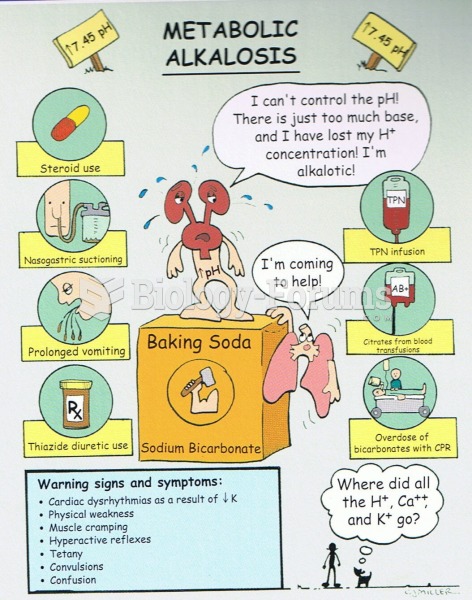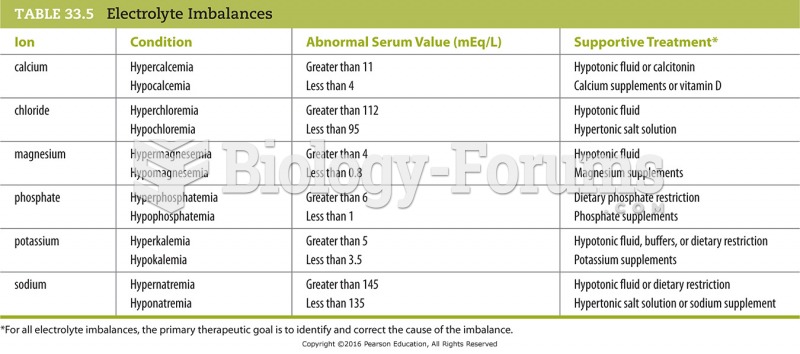|
|
|
The average human gut is home to perhaps 500 to 1,000 different species of bacteria.
The toxic levels for lithium carbonate are close to the therapeutic levels. Signs of toxicity include fine hand tremor, polyuria, mild thirst, nausea, general discomfort, diarrhea, vomiting, drowsiness, muscular weakness, lack of coordination, ataxia, giddiness, tinnitus, and blurred vision.
Medication errors are more common among seriously ill patients than with those with minor conditions.
Patients who have undergone chemotherapy for the treatment of cancer often complain of a lack of mental focus; memory loss; and a general diminution in abilities such as multitasking, attention span, and general mental agility.
Human kidneys will clean about 1 million gallons of blood in an average lifetime.







